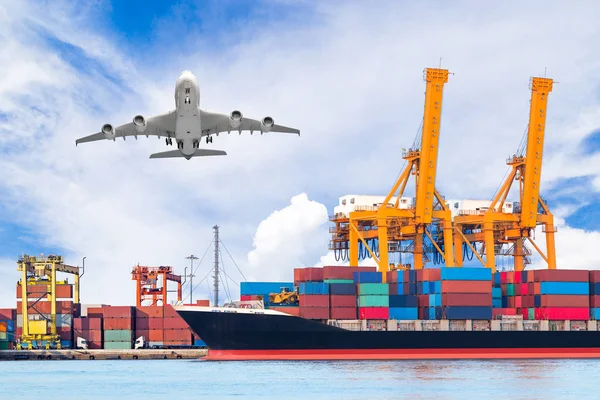Introduction
The global supply chain is a complex network that spans continents, linking manufacturers, suppliers, and consumers. While this interconnectedness has facilitated unprecedented economic growth, it has also exposed vulnerabilities that can be exploited by those with malicious intent. The threat of terrorism and illicit activities targeting the supply chain has necessitated proactive measures to mitigate risks and protect the integrity of the global trade system.
Understanding C-TPAT
C-TPAT, established by U.S. Customs and Border Protection (CBP) in the aftermath of the 9/11 attacks, is a voluntary program that encourages businesses to collaborate with authorities to enhance the security of their supply chains. Participants in the program commit to implementing and maintaining stringent security measures throughout their supply chain processes. These measures not only safeguard against potential terrorist activities but also protect against other forms of criminal exploitation, such as smuggling and trafficking.
Key Components of C-TPAT
To attain C-TPAT certification, companies must adhere to a set of comprehensive security criteria. These criteria cover various aspects of supply chain management, including:
- Physical Security: Ensuring the integrity and security of facilities, including warehouses, manufacturing plants, and distribution centers.
- Personnel Security: Implementing measures to screen and vet employees, ensuring that only trustworthy individuals have access to sensitive areas of the supply chain.
- Procedural Security: Developing and implementing protocols for the handling, storage, and transportation of goods to minimize the risk of tampering or unauthorized access.
- Information Technology Security: Safeguarding digital systems and data to protect against cyber threats that could compromise the integrity of the supply chain.
- Security Training and Awareness: Providing ongoing training for employees to raise awareness of security threats and instill a culture of vigilance within the organization.
Benefits of C-TPAT Certification
Achieving C-TPAT certification brings a myriad of benefits to businesses engaged in international trade:
- Expedited Processing: C-TPAT certified companies enjoy expedited processing of their shipments at customs, leading to faster and more efficient cross-border trade.
- Reduced Inspections: With a proven commitment to security, certified companies are subject to fewer inspections, reducing delays and costs associated with cargo examinations.
- Enhanced Reputation: C-TPAT certification signals to partners and customers that a company is dedicated to maintaining the highest standards of security and compliance.
- Global Market Access: Many international partners prioritize working with C-TPAT certified entities, opening doors to new markets and business opportunities.
- Risk Mitigation: By implementing robust security measures, businesses can proactively identify and address vulnerabilities, reducing the risk of security incidents and disruptions.
The Global Impact of C-TPAT
C-TPAT’s influence extends beyond the borders of the United States. As a voluntary program, it has inspired similar initiatives in other countries and regions, fostering a collaborative and global approach to supply chain security. The principles and best practices promoted by C-TPAT serve as a blueprint for enhancing security measures worldwide, contributing to a more resilient and interconnected global trade ecosystem.
Challenges and Evolving Threats
While C-TPAT has proven effective in enhancing supply chain security, the landscape of global trade is dynamic, and new challenges continually emerge. From evolving cyber threats to the changing nature of terrorism, staying ahead of potential risks requires ongoing commitment and adaptability. C-TPAT participants must remain vigilant, continuously assess their security measures, and collaborate with authorities and fellow industry stakeholders to address emerging threats collectively.
Conclusion
In conclusion, the importance of C-TPAT in securing global supply chains cannot be overstated. By fostering collaboration between businesses and government agencies, C-TPAT has created a framework that not only protects against security threats but also facilitates the efficient movement of goods across borders. As businesses increasingly recognize the value of supply chain security in maintaining a competitive edge, C-TPAT stands as a cornerstone in the quest for a safer and more resilient global trade environment. The commitment to these principles not only benefits individual companies but contributes to the broader goal of creating a secure and interconnected global supply chain network.








